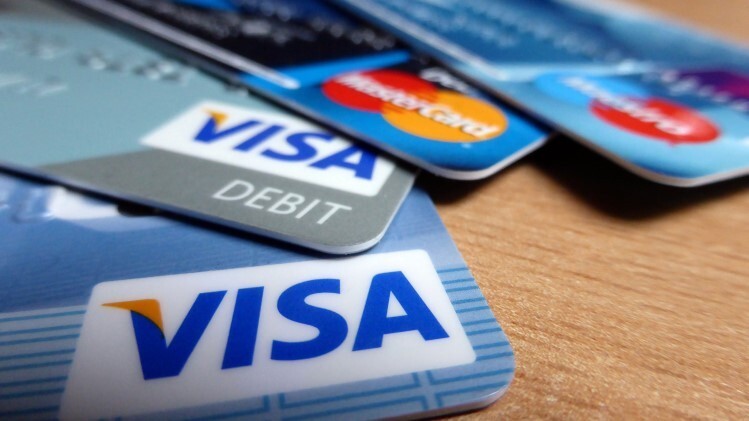The Future of Credit Card Processing
Credit card processing has come a long way since its inception, evolving with technological advancements and changing consumer behaviors. As we look ahead, the future of credit card processing promises even more exciting transformations and innovations. In this article, we explore the key trends and developments that are shaping the future of credit card processing and how they will impact businesses and consumers in the years to come.
1. Seamless Contactless Payments
Contactless payments have already gained popularity, and they are set to become even more prevalent in the future. As consumers embrace the convenience and speed of tap-and-go transactions, credit card companies and merchants will continue to invest in contactless payment infrastructure. Expect to see wider adoption of contactless technology in public transportation, vending machines, and other everyday transactions, making the payment process more seamless than ever before.
2. Mobile Wallet Domination
Mobile wallets have already begun to change the way we pay, and they are poised to dominate the credit card processing landscape in the future. With the proliferation of smartphones and the increasing acceptance of mobile payment platforms like Apple Pay, Google Pay, and Samsung Pay, consumers will increasingly rely on their mobile devices for making purchases. Mobile wallets will also continue to evolve, incorporating more features and functionalities beyond payments, such as loyalty programs and digital receipts.
3. Biometric Authentication and Enhanced Security
The future of credit card processing will witness a greater focus on security, and biometric authentication will play a crucial role. Biometric features like fingerprint and facial recognition will become more mainstream, replacing traditional PINs and passwords. These advanced authentication methods offer a higher level of security, reducing the risk of fraud and unauthorized access to cardholder information.
4. Artificial Intelligence for Fraud Detection
As cyber threats evolve, credit card companies will increasingly rely on artificial intelligence (AI) to detect and prevent fraud. AI algorithms can analyze vast amounts of transaction data, identify patterns indicative of fraudulent activities, and provide real-time alerts. This proactive approach to fraud detection will enhance security and protect both businesses and consumers from financial losses.
5. Smart Contracts and Conditional Payments
Blockchain technology will play a pivotal role in credit card processing by enabling smart contracts and conditional payments. Smart contracts are self-executing contracts with terms directly written into code. They can facilitate automatic payments based on predefined conditions, reducing the need for manual intervention and streamlining complex payment processes.
6. Integration of Cryptocurrencies
The rise of cryptocurrencies has led to an increasing interest in their integration into credit card processing systems. Credit card companies are exploring ways to enable seamless transactions involving digital currencies. As cryptocurrencies gain wider acceptance, we can expect credit card processors to incorporate these alternative payment methods to cater to a growing segment of crypto-savvy consumers.
7. Enhanced Data Analytics and Personalization
Credit card processing will leverage advanced data analytics to gain deeper insights into consumer behavior and preferences. With access to comprehensive transaction data, credit card companies can offer highly personalized rewards, offers, and promotions tailored to individual cardholders. This level of personalization will foster stronger customer loyalty and satisfaction.
8. Sustainability and Green Initiatives
As environmental consciousness grows, credit card processing will align with sustainable practices. Companies may offer eco-friendly credit cards made from recycled materials, implement carbon offset programs, or contribute to environmental causes with each transaction. Sustainability initiatives will appeal to environmentally conscious consumers and demonstrate corporate social responsibility.
9. Integration with Internet of Things (IoT)
The Internet of Things (IoT) will influence credit card processing by connecting various devices and appliances to the payment ecosystem. IoT-enabled devices will facilitate embedded payments, allowing for automatic and seamless transactions, such as reordering products when supplies run low or paying for services without manual intervention.
10. Focus on Financial Inclusion
The future of credit card processing will aim to extend financial services to underserved populations, fostering financial inclusion. Credit card companies may develop innovative credit scoring models, leveraging alternative data sources, to offer credit facilities to individuals with limited credit histories. This approach will open up new opportunities for businesses and empower more people with access to credit.
In conclusion, the future of credit card processing promises exciting advancements that will redefine the way we pay and transact. With seamless contactless payments, the dominance of mobile wallets, enhanced security through biometric authentication and AI-driven fraud detection, and the potential integration of cryptocurrencies, the payment landscape is set for transformation. As technology continues to evolve, credit card processing will become more secure, convenient, and personalized, providing a better payment experience for consumers and businesses alike. Embracing these trends and innovations will undoubtedly shape a future where credit card processing remains at the forefront of the ever-changing digital economy.






